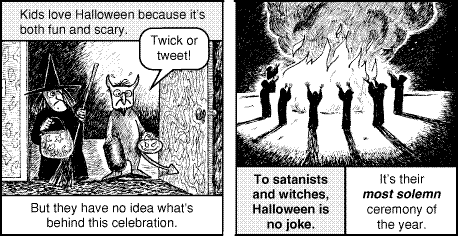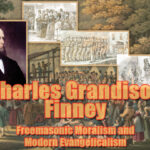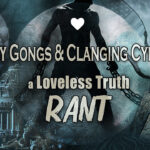On this October 31st, in the year of our Lord 2018, I was made aware of an article on Fox News that tried to justify Christians partaking in the customs of Halloween:
My first thought was, why are Christians reading Fox News? Are they actually interested in learning doctrine from an organization that employs open sodomites, and is otherwise hostile to Bible-believing Christians?
As I read the article, I thought a response was needful, as the errors promoted in this essay are very common among believers.
She starts by recounting her relatively conservative upbringing regarding Halloween, and how that changed over time. Notably she claimed that partaking in Halloween had no effect on her:
As I entered my teenage years, my parents set me free to dress up as non-Biblical characters and run around the neighborhood rather than the fall-festival, recognizing that I was not going to confuse trick-or-treating for worshipping Satan. And in the end, I think most people would say I turned out OK.
So the first thought she puts in her readers’ minds is that trick or treating is not worshipping Satan. And with her own life as proof, it causes no lasting harm.
Obviously, these arguments hold no water. One could play a video game where one kills in gory detail, and not confuse that with actual murder. And I am sure there are many people who played such vile games that “turned out OK.” Clearly, the fact that one sin is not as far along a path of depravity as another is not justification for a sin. And the fact that one turns out alright later in life, does not answer the question of whether a given behavior is pleasing to God.
Now it might seem that I am going overboard by treating those introductory statements of hers as some kind of arguments for her position. And if she followed up the rest of her article with any coherent arguments justifying her position, I would have overlooked these statements. But these “arguments” are about as coherent as anything else she says in this article trying to justify her position. So I felt the need to deal with them also.
The author goes on to accuse those who would express disapproval of the choices made regarding celebrating Halloween of “judging” and “casting stones”:
We aren’t celebrating evil. In fact, we carry the light of Christ with us on Easter just as much as we do on Halloween. But here’s the funny thing I’ve found among Christian parents in particular. We’ve gotten good at judging what one another does for Halloween. Those who feel firmly that Halloween shouldn’t be celebrated gasp at those who allow their kids to partake in the festivities. And those who allow their kids to partake in dressing up and trick-or-treating enjoy poking fun at those who would prefer to wear Biblical costumes.
So I can’t help but wonder what difference could we make as Christian parents if we simply chose to proceed in love and without casting stones?
Notice that even the mildest expression of disapproval (gasping at someone) is likened to “judging” and “casting stones.”
Tragically, this generation of easily offended Christians has forgotten what the Bible says about judging and casting stones.
The modern practice of making a figurative use of our Lord’s words to chastise anyone who calls on believers to change their ways, is a wholesale wresting of the verses in question. Behold:
John 8: 4-11 They say unto him, Master, this woman was taken in adultery, in the very act. Now Moses in the law commanded us, that such should be stoned: but what sayest thou? … He that is without sin among you, let him first cast a stone at her…. When Jesus had lifted up himself, and saw none but the woman, he said unto her, Woman, where are those thine accusers? hath no man condemned thee? She said, No man, Lord. And Jesus said unto her, Neither do I condemn thee: go, and sin no more.
Notice first that the stones that they were discussing were literal stones. Not words of rebuke. Not a gasp of disapproval. But actual stones, that according to the law, after a proper trial under the auspices of the duly constituted civil government, were to be picked up and thrown at the adulterers until they were dead.
Notice further that the Lord called her to repentance of her sin. He told her to “go and sin no more.” If “casting stones” means rebuking a believer as so many modern day professing Christians believe, then the Lord himself is guilty of this “sin.”
As is often the case in the Bible the very verses she referenced refuted the point she was making. Calling someone to turn from her sins is not casting stones.
Similarly, professed followers of Christ nowadays think that criticizing a fellow believer’s behavior is somehow “judging” as in, “Judge not lest ye be judged.” Time forbids a discussion of this verse, but take note that if one reads the context (Matthew 7:1-5) the verses are actually saying something quite different than this untoward generation might think.
As one final point on this topic, note that she contrasts “casting stones” (by which she means expressing disapproval) with “love”:
So I can’t help but wonder what difference could we make as Christian parents if we simply chose to proceed in love and without casting stones?
Now I understand that we could be wrongfully judgmental with our fellow believers at times, and sometimes we need to just show grace. We can’t go around trying to correct everything that we see that is being done wrong, even when we are certain we are right.
But in their haste to avoid being harsh, many Christians of our day have all too often fallen off the narrow path onto the other side of the issue. It is like we have collectively forgotten verses like this are in our Bible:
Leviticus 19:17 Thou shalt not hate thy brother in thine heart: thou shalt in any wise rebuke thy neighbour, and not suffer sin upon him.
According to the above verse, to withhold a “judging” rebuke, in some circumstances, is not loving but is instead hateful.
What the author writes next is interesting (but in a sad way):
Several years ago when, I will confess, I was actually beginning to feel guilty for letting my kids participate in Halloween due to much of what I was hearing and reading in the Christian world about why they shouldn’t trick-or-treat.
So the author felt guilty. Was it the Holy Ghost and her conscience? Or was it false guilt caused by bad doctrine and misguided, self-righteous Christians? Let’s find out what she says!
I read an article from a friend, and fellow author, Jessica Thompson, that brought much relief to my unnecessary burden.
She wrote,
“But I am calling to all moms out there to remember for just a couple minutes that your standing before God doesn’t change depending on what you do on October 31. To be honest, it doesn’t change no matter what you do any day of the year. You could throw the biggest block party, and hundreds of people could get saved because of the light you were to your community – and God loves you exactly the same way he loves the other parent who listened to the convictions of their hearts and stayed home. So can we please remember that we are all made righteous before God because of the work of Christ? And can we please stop trying to find our righteousness in our own traditions?”
So her fellow author relieved her guilt by reminding her that “we are all made righteous before God because of the work of Christ’. She says our “standing before God doesn’t change … no matter what [we] do any day of the year.”
Does she mean we could do anything, and it doesn’t change our standing before God? In her context, she just listed celebrating Halloween or staying home. But what about murder? I know she didn’t say that, but the question is relevant nonetheless when we examine her statements in detail.
When she says we are made righteous by the work of Christ, this is true, in the right context. We are saved by grace through faith alone. Christ died for our sins and it is only through him that we are righteous. And whether we celebrate Halloween or actively abstain from such, this is still true.
But how does this fact have anything to do with the question at hand? The question at hand is this: Is it wrong in the sight of God for Christians to trick or treat, etc. or is partaking in Halloween an allowable difference of opinion?
The answer her friend gave sheds no light on this topic, and provided her no reason to ignore her conscience. For in the context of her friend’s argument for liberty to celebrate Halloween, we can also murder, fornicate, or get drunk – and it would still be just as true, that we are made righteous by Christ. Why we could even “worship Satan” outright as the author alluded to earlier, and even such a bad work as that would have no bearing on our standing with God. God would still love us “just exactly the same way,” as the author’s friend stated.
So the idea that we are made righteous by the work of Christ is true, even if we were to commit murder, etc. Now presumably the author would not justify murder. But if you can’t use that argument to justify murder, you can’t use it to justify Christian liberty to celebrate Halloween either. Both positions stand or fall on their own merits. This idea that since believers are made righteous by the work of Christ this somehow answers the question of whether a believer should partake in Halloween traditions is a non-sequitur.
The author then ends her article with this conclusion:
So there you have it. The pressure to make the perfect decision about Halloween is off. You are free to shine the light of Christ wherever you find yourself on this All Saints Eve.
But as we have seen, nothing she wrote gave any valid argument as to why she should disregard the issue of celebrating Halloween as a Christian. We are not “free to shine the light of Christ wherever we may find ourselves” (such as in a strip club for instance.)
I hope, gentle reader, that whatever your view is regarding celebrating Halloween, that you can still see that this Fox News article shed absolutely no light on the matter.
Sadly, this article described a lady who had real concerns about whether she ought to celebrate Halloween and she was confused into thinking it was fine to ignore her conscience by an incoherent response that referenced our “standing in Christ.”
Notably, this mistake is quite common among believers today. There is little understanding regarding the distinction between our salvation by grace through faith alone, and our responsibility to live righteous and holy lives, (by faith and works), in order to be accounted worthy to stand before the Lord at his judgement seat.
How we live in in this world right now, matters a great deal to God. Even blood bought believers will give an account to God, for the things done in the body, whether they be good or bad.
Time does not allow me to explain why partaking in pagan holidays is not right for a Christian, or to discuss exactly where the line is to be drawn regarding what constitutes participating in such an activity, but I will leave you with a few thoughts:
Lest you think that God doesn’t care about something as small as partaking in a pagan holiday, please remember that God killed a believer for simply trying to catch the ark as it was about to fall (II Samuel 6:6-7.)
He also killed believers for not properly partaking of the Lord’s supper; is it possible that God disapproves of even giving the appearance of partaking in a pagan holiday? (I Corinthians 11:30, I Thessalonians 5:22)
Our Lord said we will give account for even every idle word: Is it possible that idle partaking of pagan practices might merit the same examination by God?
Matthew 12:36 But I say unto you,That every idle word that men shall speak, they shall give account thereof in the day of judgment.37 For by thy words thou shalt be justified, and by thy words thou shalt be condemned.
And finally, did God approve of these pagan customs in Ezekiel’s day described below? Or were the believers commanded to learn not the vain customs and the way of the heathen? (And do the practices described below remind you of any holiday customs today?):
Ezekiel 10:1-4 Hear ye the word which the LORD speaketh unto you, O house of Israel: Thus saith the LORD, Learn not the way of the heathen, and be not dismayed at the signs of heaven; for the heathen are dismayed at them. For the customs of the people are vain: for one cutteth a tree out of the forest, the work of the hands of the workman, with the axe. They deck it with silver and with gold; they fasten it with nails and with hammers, that it move not.










